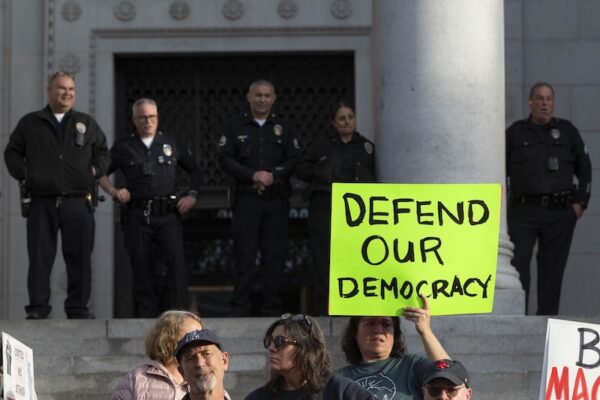Losing the War Against Terrorism
While trying to understand the causes and outcomes of the war in Iraq, the U.S. administration will need to deal with these multiple challenges and evolving situation on the ground at the same time.
In a rather interesting book that generated much debate on the wars in Afghanistan and Iraq as well as civil-military relations in the U.S., former Gen. Daniel P. Bolger provided his own account of these wars and why the U.S. lost them one after the other. He starts his book, “Why We Lost: A General’s Inside Account of the Iraq and Afghanistan Wars,” with some very provocative sentences and says: “I am a United States army general, and I lost the Global War on Terrorism. It’s like Alcoholics Anonymous, step one is admitting you have a problem. Well I have a problem. So do my peers. And thanks to our problem, now all of America has a problem, to wit: two lost campaigns and a war gone awry.” Although the diagnosis of the failure is debatable, since he considered the failure the result of strategic and operation leadership of the generals, his honest recognition and willingness to provide an argument for the failure was regarded as commendable by many.
The book, in one sense, is among many other studies that have been published in the last 10 years about two very consequential wars that not only impacted U.S. foreign policy, but also deeply affect its power and influence in the world. For some like Andrew Bacevich, a political scientist at Boston University, the wars are primarily responsible for the decline of the U.S. and the changing of the international system from unipolar to something else. Most of these accounts, especially on U.S. engagement in Iraq, provide different causes and processes for going to war with Iraq in 2003. Many have blamed different factors that generated one of the most significant strategic blunders in the history of U.S. foreign and security policy. For some, it was the result of misleading intelligence whereas others put the blame on the inter-agency disputes. Leadership studies argued that it has something to do with the personality then President George W. Bush while from the perspective of management it was a pure case of mismanagement. In the meantime, some indicated the impact of ideology and others emphasized economic interests. There will most probably be some other more original arguments about the war in Iraq, how the war was mishandled and how it led to a situation in which Iraq has become a fertile ground for the rise of groups like the Islamic State of Iraq and al-Sham (ISIS). The period since 9/11 and how the attacks transformed the U.S. security establishment, priorities, instruments and practices will continue to be under scrutiny in the coming years. The recent Senate report on the use of torture during the interrogation of detainees and outcome of these interrogations will only be one single dimension of these debates.
These debates in Iraq will take place amid different dynamics and ongoing developments that may make them more important and vital in the coming years. On the one hand, since the withdrawal of U.S. troops from Iraq, the issue was mainly considered an account of a war that ended with the success of the surge and disagreement between the U.S .and Iraqi governments over the status of forces in the country. However, the rise of ISIS and subsequent coalition operation demonstrated that the results of the war will go on for the foreseeable future. The different fault lines in Iraq that started to be moved after the invasion of the country by U.S. forces will continue to impact politics in Iraq as well. Furthermore, instability in Iraq may spread to other countries and generate further regional problems and security risks for the U.S. and its allies in the coming years.
In the meantime, the ghost of the 2003 war and its aftermath will also continue to affect strategic as well as tactical and operational dimension of all military and security policies of the U.S. For some time now we have seen the impact of this war in Syria and in U.S. inaction and avoidance to stop President Bashar Assad. “Quagmire,” “war fatigue,” “no boots on the ground” and “the day after” have become buzzwords for those who endorsed this position. For three years, the U.S. administration avoided involvement in Syria in order to avoid another Iraq, but mostly as a result of this strategy, now it has Iraq, Syria and on top of that, ISIS, on its plate. While trying to understand the causes and outcomes of the war in Iraq, the U.S. administration will need to deal with these multiple challenges and evolving situation on the ground at the same time.
Although, just like Gen. Bolger’s, there are various accounts of the failures in Iraq and lessons provided by civilian and military leadership for the U.S. administration and the initial debates about U.S. strategy against ISIS provides a bleak picture about its potential success. However, although many endorsed the view of airstrikes being insufficient, the lack of a solution for Assad and the difficulty to train and equip an army to stabilize Iraq and Syria, there does not seem to be signs of a change in strategy. If this current course continues, there will be more challenging days ahead for international and regional security and there will be more books written on the topic of failures in the coming years.
This article was originally published in the Daily Sabah on December 29, 2014.




















